Eco-Friendly Driveway Solutions – Sustainable and Green Paving Options
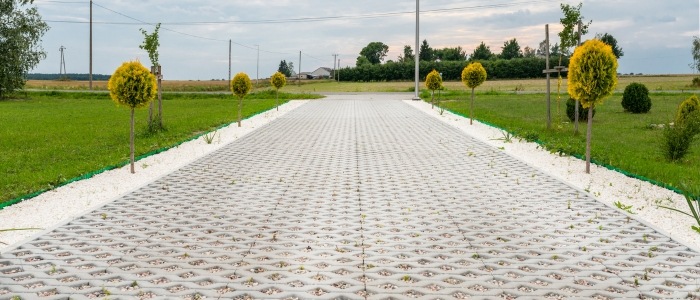
In today’s world, where sustainability is becoming a priority, homeowners are seeking ways to reduce their environmental footprint without compromising on aesthetics or function. One effective way to achieve this is by choosing eco-friendly driveway materials. An eco-friendly driveway offers a combination of durability, cost-effectiveness, and reduced environmental impact, making it an ideal solution for modern homes.
Among the various paving options, chip and seal stands out as a sustainable and practical choice for eco-conscious homeowners. By understanding the range of available materials and their environmental benefits, you can make an informed decision that aligns with your sustainability goals.
What is an Eco-Friendly Driveway?
An eco-friendly driveway uses sustainable, durable materials that minimize environmental impact, such as permeable paving or recycled materials. Choosing eco-friendly driveway options reduces stormwater runoff, conserves energy, and contributes to environmental sustainability.
- What Is an Eco-Friendly Driveway?
- Types of Eco-Friendly Driveway Materials
- Average Cost of Eco-Friendly Driveways
- Benefits of Eco-Friendly Driveways
- How Eco-Friendly Driveways Help the Environment
- Installation Process for Eco-Friendly Driveways
- Maintenance of Eco-Friendly Driveways
- How to Choose the Right Eco-Friendly Driveway Option for Your Property
Read on to discover how adopting eco-friendly driveway materials can enhance your home’s curb appeal and contribute to a greener future.
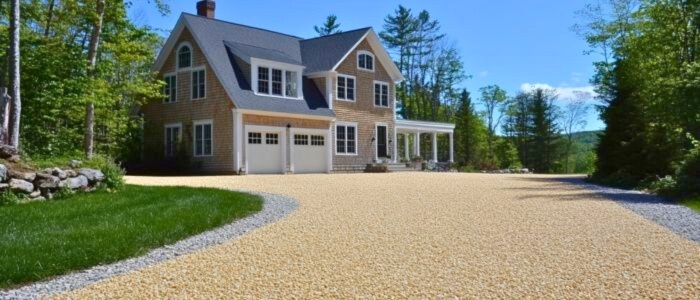
1. What Is an Eco-Friendly Driveway?
An eco-friendly driveway refers to using materials that offer a lower environmental impact, promoting sustainability without compromising the functionality or aesthetic of your property. By opting for eco-friendly paving solutions, homeowners can improve the durability and longevity of their driveways while significantly reducing environmental harm. For more insights into eco-friendly options like chip and seal paving, check out Chip Seal Driveways.
Key Benefits of Eco-Friendly Driveways:
- Sustainability: Eco-friendly materials help reduce waste and promote resource conservation.
- Durability: Many sustainable materials, such as recycled asphalt or permeable pavers, last longer than traditional options.
- Aesthetic Appeal: Eco-friendly materials, such as natural stone or permeable paving, enhance the visual appeal of your home.
When comparing eco-friendly driveways with traditional asphalt or concrete driveways, you’ll find that the latter have a greater negative environmental impact, such as higher carbon emissions and increased water runoff.
Contact us today to explore eco-friendly driveway options for your home.
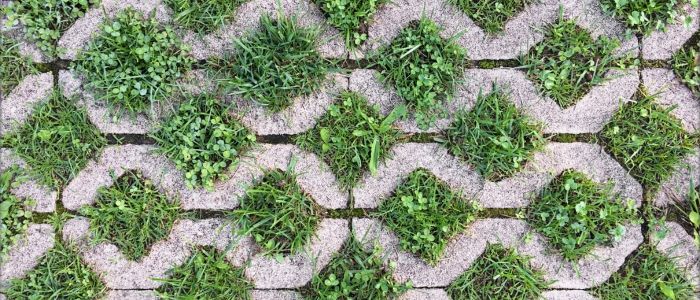
2. Types of Eco-Friendly Driveway Materials
There are several types of eco-friendly materials that can be used for driveways, each offering unique benefits.
Permeable Paving
Permeable paving systems allow water to pass through the surface, reducing stormwater runoff and helping to recharge groundwater. These systems typically use gravel, concrete blocks, or porous asphalt.
Benefits:
- Reduces the risk of flooding
- Improves water filtration
- Can be customized for different aesthetic styles
Cost Considerations: Permeable paving can be slightly more expensive upfront, but the long-term environmental benefits and reduced maintenance costs make it a smart choice. To learn more about how chip and seal paving compares to other options, check out Chip Seal vs. Asphalt.
Recycled Concrete, Brick, and Asphalt
These materials are an excellent choice for homeowners looking to reduce their carbon footprint. Recycled concrete, brick, and asphalt offer durability and performance without the need for new resources.
Benefits:
- Reuses existing materials, reducing landfill waste
- Durable and cost-effective
- Reduces carbon emissions associated with producing new materials
Gravel Driveways
Gravel is a classic eco-friendly driveway option. It’s affordable, easy to install, and can be replenished over time.
Benefits:
- Low environmental impact
- Allows for water infiltration
- Minimal maintenance requirements
Eco-Friendly Asphalt Options
Not all asphalt is created equal. Eco-friendly asphalt options include hot mix and cold mix. Cold mix asphalt, for example, uses fewer chemicals and has a lower environmental impact compared to traditional hot mix asphalt.
Contact us for a green driveway makeover.
Thinking About a New Chip Seal Driveway?
Request a Free Quote
Our team is ready to help you create a durable, beautiful surface that stands the test of time. Contact us today to learn more.
3. Average Cost of Eco-Friendly Driveways
Understanding the costs associated with eco-friendly driveways is essential when making your decision. The price of an eco-friendly driveway depends on the materials, installation process, and location.
Breakdown of Costs:
| Material Type | Average Cost per Square Foot |
| Permeable Paving | $10–$20 |
| Recycled Concrete/Brick | $5–$15 |
| Gravel | $1–$3 |
| Eco-Friendly Asphalt | $4–$8 |
Factors Affecting Pricing:
- Material choice
- Installation complexity
- Regional price variations
Additional Cost Considerations:
- Labor Costs: Installation of some eco-friendly materials, such as permeable pavers, may require specialized labor.
- Maintenance Costs: While eco-friendly options typically require less maintenance, you may incur occasional costs for replenishing gravel or clearing permeable pavers.
Learn more about cost-saving resources.
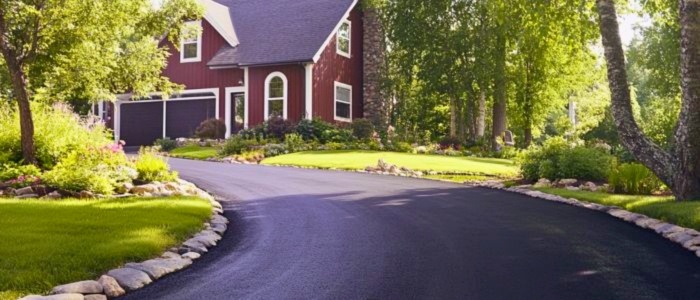
4. Benefits of Eco-Friendly Driveways
Choosing an eco-friendly driveway offers several compelling advantages:
Environmental Benefits:
- Reducing Stormwater Runoff: Permeable paving helps filter rainwater and reduces runoff, preventing flooding.
- Reducing Carbon Footprint: Using recycled and locally sourced materials lowers the carbon footprint associated with production and transportation.
Long-Term Savings:
Eco-friendly driveways tend to require less maintenance, reducing long-term repair costs. Their durability ensures that you won’t need frequent replacements.
Aesthetic Appeal:
Eco-friendly materials can be customized to fit various home styles, increasing property value and curb appeal.
For more on chip and seal paving, check out Chip Seal Driveway Benefits.
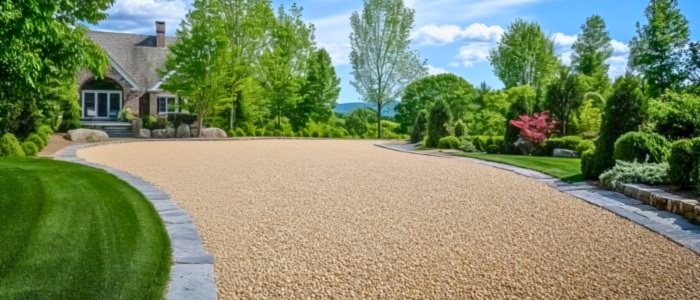
5. How Eco-Friendly Driveways Help the Environment
Eco-friendly driveways offer several direct and indirect benefits to the environment, including:
- Rainwater Filtration: Permeable paving systems filter rainwater, helping to prevent pollution from entering stormwater systems.
- Heat Reduction: Some materials, like light-colored gravel, reflect more sunlight and help to reduce the heat island effect in urban areas.
- Energy Conservation: Recycled materials require less energy to process than new materials, resulting in a lower carbon footprint.
| Eco-Benefit | Impact on Environment |
| Rainwater Filtration | Reduces runoff, aids in groundwater replenishment |
| Heat Reduction | Decreases localized warming |
| Energy Conservation | Lower production energy consumption |
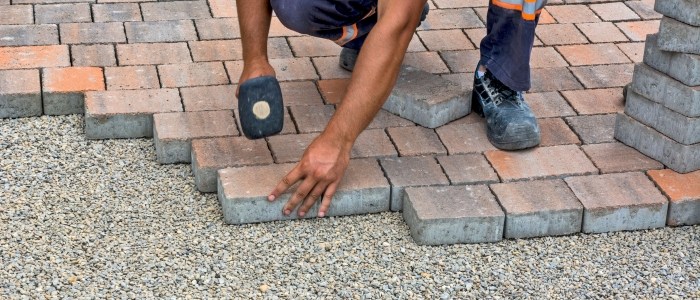
6. Installation Process for Eco-Friendly Driveways
Installing an eco-friendly driveway typically involves the following steps:
- Site Preparation: Ensure proper grading for water runoff.
- Material Selection: Choose the right eco-friendly material based on budget, climate, and aesthetics.
- Installation: Depending on the material, this could include laying down gravel, pouring permeable pavers, or applying recycled asphalt.
Key Considerations:
- The installation time and labor requirements can vary based on the materials chosen.
- Some materials, like permeable pavers, may require more attention to detail during installation to ensure long-term functionality.
Learn about Chip Seal Driveway Installation.
7. Maintenance of Eco-Friendly Driveways
While eco-friendly driveways are low-maintenance compared to traditional options, regular upkeep is necessary to preserve their functionality and aesthetics.
Types of Maintenance:
- Gravel: Rake and replenish gravel as needed.
- Permeable Paving: Clear debris and ensure proper water infiltration.
- Recycled Materials: Keep surfaces clear of weeds and dirt.
| Material Type | Maintenance Frequency | Estimated Costs |
| Gravel | Annual | Low |
| Permeable Paving | Bi-annual | Moderate |
| Recycled Concrete/Brick | Minimal | Low |
8. How to Choose the Right Eco-Friendly Driveway Option for Your Property
When selecting the best eco-friendly driveway material, consider the following factors:
- Location and Climate: Some materials perform better in specific climates or terrains.
- Budget: Be realistic about upfront and long-term costs.
- Environmental Goals: Choose materials that align with your sustainability objectives.
Contact our expert team for guidance on selecting the right eco-friendly driveway for your property.
FAQs
Yes! While the initial cost may be higher, the long-term benefits, reduced maintenance, environmental impact, and improved curb appeal, make it a wise investment.
Eco-friendly driveways, especially those made with durable materials like recycled concrete or permeable pavers, can last just as long, if not longer, than traditional driveways.
Materials like permeable pavers, recycled asphalt, and gravel are some of the most eco-friendly options.
By reducing stormwater runoff, conserving energy, and using recycled materials, an eco-friendly driveway helps to lower your carbon footprint.
Do eco-friendly driveways require more maintenance?
Not necessarily. In fact, many eco-friendly options require less maintenance over time compared to traditional asphalt or concrete driveways.
Thinking About a New Chip Seal Driveway?
Request a Free Quote
Our team is ready to help you create a durable, beautiful surface that stands the test of time. Contact us today to learn more.
Conclusion
Eco-friendly driveways offer numerous benefits, including improved sustainability, lower maintenance costs, and enhanced curb appeal. By opting for green paving solutions, you contribute to a cleaner environment while improving the value of your home.
Contact us today for a free consultation on eco-friendly driveway options.



